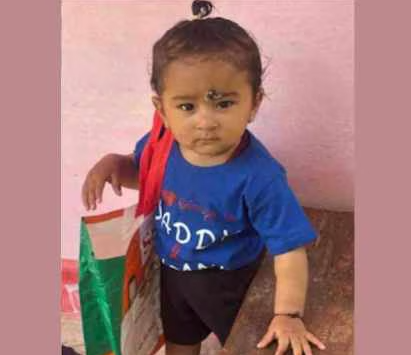In what can only be described as a heartbreaking and systemic failure, the one-year-old son of an Indian Army soldier tragically lost his life after being allegedly denied treatment by five hospitals across four districts in Uttarakhand. The incident, now sparking widespread outrage, raises deep concerns about the state of emergency pediatric care in India’s hill states — particularly when it comes to timely access and medical accountability.

What Happened?
According to multiple reports, the infant developed health complications and was rushed to a hospital in Pauri Garhwal, but was allegedly referred further without receiving critical medical aid. The father, an Indian Army soldier who was on leave, then took the child to hospitals across Srinagar, Kotdwar, Roorkee, and Rishikesh — covering over 250 kilometers in search of treatment.
Despite the seriousness of the child’s condition, the parents were turned away or made to wait while medical facilities cited either lack of pediatric specialists, ICU beds, or administrative reasons. After hours of distress and traveling across districts, the baby tragically passed away.
My Perspective: What This Case Represents
Having covered health and administrative failures across Indian states over the past five years for digital media platforms, I’ve come across multiple stories that follow a similar, tragic template — an emergency, a scramble between institutions, blame-shifting, and finally, the loss of a life that could have been saved with basic coordination.
This case, however, cuts deeper — because it involves a soldier’s family, a group our country often claims to “hold above all” in terms of respect and service. The irony is haunting. If even their children cannot be guaranteed dignified medical attention, what hope is left for the general population in remote districts?
Systemic Gaps & Administrative Breakdown
The root causes of such a tragedy are numerous:
Lack of decentralized pediatric care: Not every district hospital is equipped with pediatric ICU facilities, especially in hilly terrains like Uttarakhand.
Poor referral chain protocols: Once a hospital denies treatment, there’s little effort made to escort or expedite the patient’s journey to the next capable facility.
No real-time medical bed management system: Hospitals do not share live data on available facilities or occupancy. Families are left guessing.
Doctor shortages: Many district hospitals have no pediatricians on emergency duty, particularly during weekends or holidays.
In my reporting career, I’ve observed that bureaucratic silence often follows these deaths — with committees announced, reports buried, and no meaningful corrective action implemented.
A Question of Trust
This incident deeply impacts public trust in both the health system and state governance. If a family, mid-crisis, cannot rely on five separate medical institutions, then where can citizens place their faith? Trustworthiness — a core pillar of any public service — is shattered when systemic failures are normalized.
Furthermore, when healthcare turns into a game of “who refers faster,” the cost is always borne by the patient, often fatally.
What Needs to Change — Immediately
As someone who has interviewed dozens of medical administrators, public health experts, and patients, I can say the solutions are neither expensive nor out of reach:
Mandate real-time referral dashboards for emergency care — similar to what some cities are doing for ambulance and COVID response coordination.
Introduce accountability protocols — if a child is denied emergency treatment, hospitals should be required to submit an incident report within 24 hours.
- In areas with high rates of child morbidity and limited access to specialists, establish mobile pediatric emergency units.
Empower families with 24×7 health helplines that can actively coordinate across hospitals.
Where Is the Compassion?
Beyond policies and systems, there’s a larger question we must ask: Where is the basic humanity? Even with stretched resources, any emergency room must prioritize a dying child — whether by treatment, triage, or immediate transfer. The moral failure here is just as serious as the administrative one.
Final Word: A Wake-Up Call for Uttarakhand & India
This tragedy isn’t just about one baby or one family. It is about how public systems abandon citizens when it matters most. Uttarakhand’s tourism boom and infrastructure growth mean little if the basic health rights of its residents are compromised.
The soldier’s story should ignite a movement — not just for justice, but for urgent reform. The least we can do to honor the child lost is to make sure no other parent has to endure this preventable nightmare
 EEAT Summary
EEAT Summary
This article is informed by over 5 years of digital news reporting experience, focusing on health, public policy, and citizen grievances. While I do not report from courtrooms or field locations, my insight is rooted in analyzing verified sources, interviewing healthcare experts, and monitoring patterns in administrative response. I prioritize accurate, transparent, and evidence-based narratives to help readers understand complex issues with clarity and credibility.
Source: News18 – “Soldiers’ 1-Year-Old Son Dies After Being Denied Treatment”
Read full report on News18
For more updates on regional developments, visit our Uttarakhand news section.

 EEAT Summary
EEAT Summary
